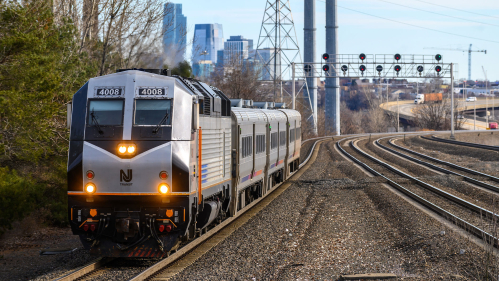What You Need to Know About Talks to Avoid a New Jersey Transit Strike

Bill Dwyer called the possible strike "a public relations nightmare" for both sides
More than 100,000 people who rely on NJ Transit trains are bracing for the possibility of a strike later this week. Engineers could walk off the job at 12:01 a.m. Friday if management and union leaders cannot agree on a new contract.
NJ Transit and the Brotherhood of Locomotive Engineers and Trainmen (BLET) are meeting in Washington today to resume the tense negotiations. The union’s members overwhelmingly rejected the first deal in April, and both sides are reportedly far apart on wages.
Bill Dwyer, a negotiation expert in the School of Management and Labor Relations, has been on both sides of the bargaining table. Dwyer came to Rutgers from PSE&G, where he worked his way from meter reader to head of labor relations and employee relations for the company’s 12,000-person workforce. He negotiated contract agreements with multiple unions.
Dwyer talked to Rutgers Today about why the NJ Transit negotiations are so different.
NJ Transit and union leaders are criticizing each other in the press and tensions are high. Is this out of the ordinary for a contract negotiation?
The depth of public disagreement in this case is not typical. In many contract talks, the parties establish and honor a ground rule to refrain from negotiating through the press or in public. But the dynamics here are different. Both sides are providing information to the press that puts them in a good light and makes their counterpart out to be the bad guys. That is never helpful. This is about as arduous as it gets in the world of labor relations.
Who has more to lose if there's a strike: NJ Transit or the union?
While a strike would be a public relations nightmare for both parties, the union has more to lose in terms of public perception. NJ Transit has a responsibility to manage costs to keep fares affordable. In addition to labor costs, they must balance negotiating fair labor contracts with their other obligations like system maintenance, maintaining affordable fares, and ensuring reliable service. Most commuters and the public, in general, understand that.
Both sides are reportedly far apart on wages. What usually happens in a case like this?
It is common for employers to start with low offers and unions to start with high demands. Then, they typically engage in a series of concessions until the wage offer and all the other items that are a part of the negotiations are acceptable to both parties. At that point, the union brings the tentative contract agreement before its membership for a ratification vote. Most votes result in passage of the contract. That did not happen the first time.
Union members overwhelmingly rejected that first contract agreement. Does that put more pressure on the union’s leaders?
It puts equal pressure on both sides to resolve the matter.
The union representing NJ Transit’s bus drivers and mechanics just reached a tentative agreement on their next contract. Does that change the dynamic for the train engineers?
While perhaps it should, that does not appear to be the case here. The 14 other unions that represent workers at NJ Transit settled for modest wage increases. The BLET membership appear to be convinced that they are severely underpaid compared to others in their line of work and are seeking equitable treatment.
Is there any way to prevent a strike if both sides cannot reach an agreement?
Yes, Congress and the President could act to avert a strike by passing and signing legislation to impose a tentative contract on NJ Transit and the BLET. That would be like what happened in December 2022 when President Biden signed a bill to prevent a national rail strike.


